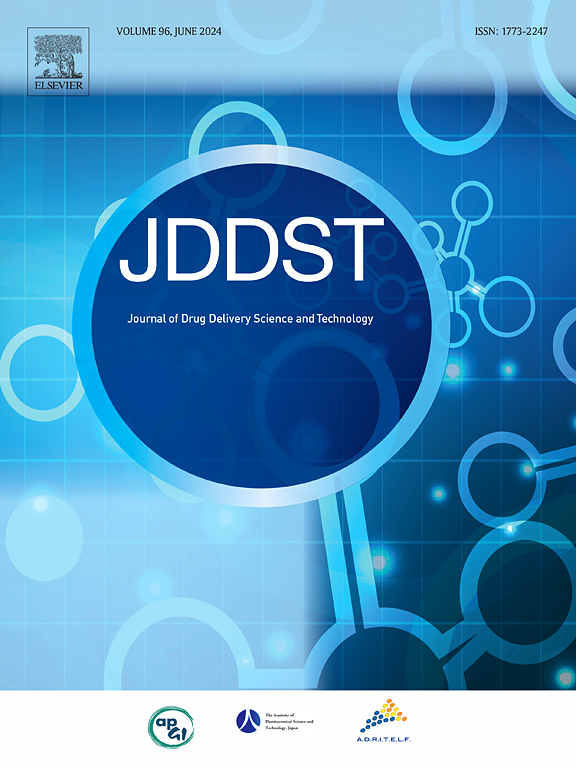癌症治疗中基于外泌体的药物递送:进展和未来展望
IF 4.9
3区 医学
Q1 PHARMACOLOGY & PHARMACY
Journal of Drug Delivery Science and Technology
Pub Date : 2025-09-01
DOI:10.1016/j.jddst.2025.107453
引用次数: 0
摘要
尽管癌症治疗取得了重大进展,但化疗和其他抗癌药物的疗效往往受到其毒性和脱靶效应的限制。药物传递系统的最新进展导致了新型载体的发展,旨在提高药物疗效,同时最小化毒性。在这些载体中,外泌体由于其独特的特性,包括低免疫原性、高稳定性、靶向特异性和引发抗癌免疫反应的能力,引起了相当大的关注。与传统给药方法相比,这种靶向方法可以增强肿瘤部位的药物积累,同时降低全身毒性。尽管它们具有治疗前景,但基于外泌体的药物递送面临着关键的翻译障碍,包括有限的可扩展分离方法,缺乏标准化的表征协议,以及次优的药物装载效率。最近的生物工程创新已经提高了药物装载能力,而先进的分离技术现在可以大规模生产外泌体。目前,基于外泌体的癌症治疗正在通过临床试验取得进展,与传统治疗相比,显示出更高的治疗指标和更低的全身毒性。外泌体代表了癌症治疗的变革性精准医学平台,其临床转化依赖于建立标准化的制造方案和实施生物标志物驱动的患者分层策略,以优化治疗结果。本文章由计算机程序翻译,如有差异,请以英文原文为准。

Exosome-based drug delivery in cancer therapy: Advances and future perspectives
Despite significant advancements in cancer treatment, the efficacy of chemotherapy and other anti-cancer drugs is often limited by their toxicity and off-target effects. Recent progress in drug delivery systems has led to the development of novel carriers designed to enhance drug efficacy while minimizing toxicity. Among these carriers, exosomes have garnered considerable attention due to their unique properties, including low immunogenicity, high stability, target specificity, and the ability to elicit anti-cancer immune responses. This targeted approach may enhance drug accumulation at tumor sites while reducing systemic toxicity compared to conventional drug delivery methods.
Despite their therapeutic promise, exosome-based drug delivery faces critical translational barriers, which include limited scalable isolation methods, lack of standardized characterization protocols, and suboptimal drug loading efficiency. Recent bioengineering innovations have achieved improvements in drug loading capacity, while advanced isolation techniques now enable large-scale exosome production. Currently, exosome-based cancer therapeutics are advancing through clinical trials, demonstrating enhanced therapeutic indices and reduced systemic toxicity compared to conventional treatments.
Exosomes represent transformative precision medicine platforms for cancer therapy, with clinical translation dependent on establishing standardized manufacturing protocols and implementing biomarker-driven patient stratification strategies to optimize therapeutic outcomes.
求助全文
通过发布文献求助,成功后即可免费获取论文全文。
去求助
来源期刊
CiteScore
8.00
自引率
8.00%
发文量
879
审稿时长
94 days
期刊介绍:
The Journal of Drug Delivery Science and Technology is an international journal devoted to drug delivery and pharmaceutical technology. The journal covers all innovative aspects of all pharmaceutical dosage forms and the most advanced research on controlled release, bioavailability and drug absorption, nanomedicines, gene delivery, tissue engineering, etc. Hot topics, related to manufacturing processes and quality control, are also welcomed.

 求助内容:
求助内容: 应助结果提醒方式:
应助结果提醒方式:


